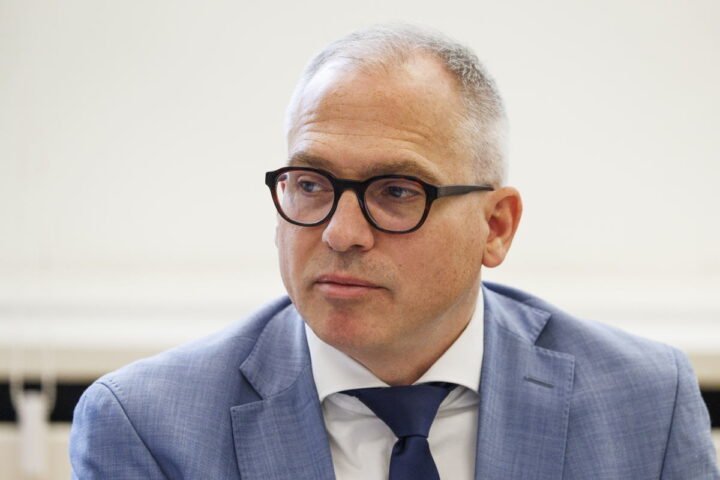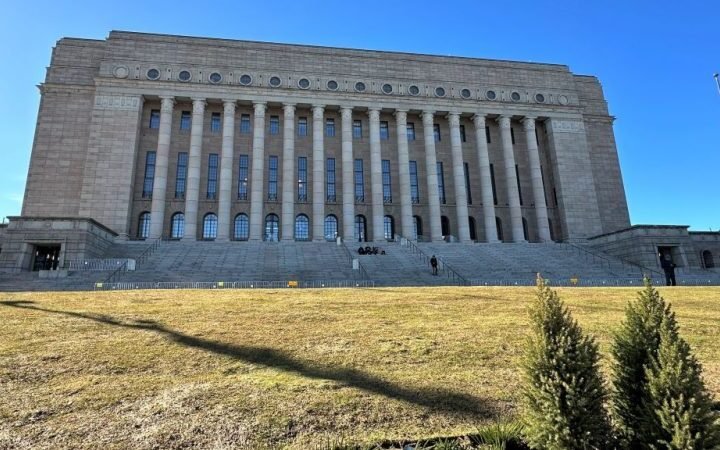Ursula von der Leyen’s upcoming outline of the EU’s new seven-year budget on Wednesday represents a decisive consolidation of power within the European Union, prioritizing national governments and the Commission over traditional legislative bodies. Observers anticipate that this may lead to complications in negotiations.
Von der Leyen is expected to intensify control over the trillion-euro budget, limiting the influence of MEPs and regional governments. Under this proposed framework, member states will be required to submit national plans and fulfill domestic reform criteria to access EU cohesion and agricultural funds, which account for two-thirds of the total budget. Such measures have sparked concerns about shifting responsibilities and increased tensions among national stakeholders.
Despite recent reassurances from von der Leyen to regional leaders and farmers, this development could significantly shape forthcoming discussions with EU nations and legislators. The current agriculture commissioner faces challenges in maintaining critical rural investments that could be jeopardized under these new guidelines.
Supporters of this model argue it streamlines bureaucratic processes, especially given the need for Europe to respond rapidly to issues like the war in Ukraine and public health crises. However, the limited size of the budget poses risks, as key nations, notably Germany, resist increased expenditure despite calls for deeper integration.
EU ponders Israel
Today, EU foreign ministers will deliberate on strategies to recalibrate their approach towards Israel to encourage an end to the conflict in Gaza. The foreign ministers will explore options for reshaping relations during today’s meeting, amid concerns over humanitarian conditions in the region.
Kaja Kallas, the EU’s foreign minister, acknowledged improvements in accessing aid but emphasized that distribution remains problematic and the recently negotiated aid framework does not equate to a ceasefire. Despite a temporary agreement in the previous week, divisions persist within the EU regarding possible actions against Israel, inducing skepticism about any significant changes arising from today’s discussions.
Although the visit of Israeli and Palestinian ministers to Brussels for the EU-Southern neighbourhood ministerial dinner last night presents a rare opportunity for dialogue, it underscores the complex dynamics at play, where decisive actions will largely rest with local authorities and those in Washington.
INTERVIEW: Greens have no regrets
Bas Eickhout, head of the Greens, expressed no regrets about supporting the European Commission last year, even as the European People’s Party increasingly dominates the climate agenda. He asserted the necessity for change, criticizing the pharmaceutical lobby’s influence on EU policy and suggesting that von der Leyen is genuinely inclined to collaborate with Green initiatives.
Stick with petrol car phaseout, Berlin states
Germany’s new environment minister reaffirmed the commitment to the EU’s objective of phasing out new fossil-fuel vehicles by 2035. Carsten Schneider, a Social Democrat, emphasized that revisiting previously agreed-upon decisions is not an option, particularly as right-wing factions continue to oppose the planned ban.
This perspective raises questions about the broader support within Germany, a country renowned for its automotive industry, amid ongoing political debates surrounding environmental policies.
Major news on minors
Recent developments allow countries to establish their own age restrictions for minors accessing social media, a move welcomed by France which advocated for such measures. The release of new guidelines by the Commission aims to enhance protection for young internet users.
EU fraud-buster race
Three candidates are vying to lead OLAF, the European anti-fraud agency, which has significant authority in Brussels. The contenders presented their visions to MEPs in a recent hearing, highlighting the need for OLAF to transition from an advisory role to one that actively enforces binding recommendations.
This signifies OLAF’s critical role in fostering transparency and accountability in EU financial matters, especially as the agency prepares for leadership changes at the end of the month.
Around the bloc
Contributors: Magnus Lund Nielsen, Jacob Wulff Wold, Niko J. Kurmayer, Anupriya Datta, Alexandra Brzozowski, Maria Simon Arboleas, Angelo Di Mambro, Thomas Møller-Nielsen, Elisa Braun, Charles Szumski, Catalina Mihai, Aneta Zachová, Nick Alipour, Aleksandra Krzysztoszek, Inés Fernández-Pontes, Alessia Peretti.
SEO Key Phrases: EU budget reform, humanitarian aid in Gaza, EU agriculture commissioner, fossil fuel ban 2035, protection of minors online, leadership of OLAF, money laundering investigation, EU political tensions.









